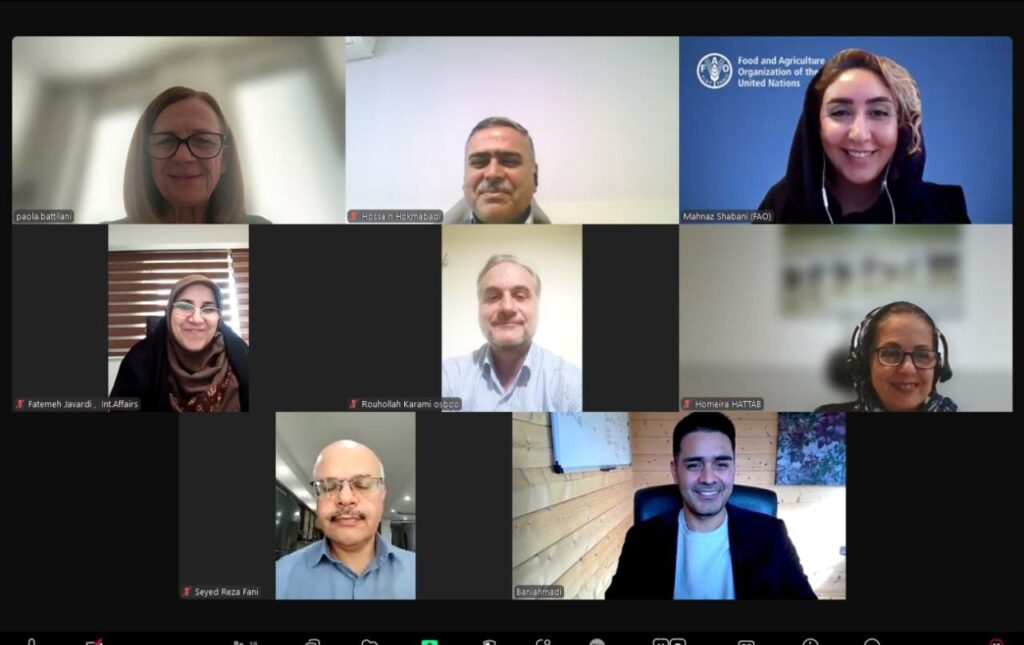Tehran – In collaboration with the Ministry of Agriculture on a project entitled “Improvement of Pistachio Production and Export by Establishing Integrated Product Management,” the United Nations Food and Agriculture Organization (FAO) of Iran has organized a series of workshops to enhance the safety and export potential of pistachios.
The initiative, led by Paola Battarani, FAO’s international pistachio value chain and processing consultant, took place from January 26th to February 5th. It mainly focuses on the development and implementation of safer crop production, ensuring safer crop production and strengthening best practices for pistachio safety and quality, announced in a press release on March 24th.
FAO has brought together 60 national key stakeholders from the government, bringing together the private sector, including pistachio growers, processors, traders, and academia, to enhance the mycotoxin prevention, detection and control capabilities across the pistachio supply chain. The workshop equiped participants with the tools and strategies needed to increase the quality and competitiveness of pistachios in the global pistachio market.
Iran’s pistachio industry plays an important role in the country’s economy and global nut trade as one of the world’s top producers and exporters of high quality pistachios.
Globally, aflatoxins produced by Aspergillus bacteria are affected by environmental conditions, agricultural practices, and post-harvest handling and can develop at various stages of the pistachio supply chain.
To address these challenges, Iran has implemented excellent agricultural practices (gaps), applying strict quality control mechanisms, improved drying and storage, enhanced mycotoxin testing capabilities, and biological control solutions.
The FAO-led workshop provides a platform for knowledge exchange and technical capacity building, and features the latest scientific insights and risk mitigation strategies for industry stakeholders across the pistachio value chain.
By fostering collaboration between regulators, industry stakeholders and researchers, the training strengthened the knowledge sharing network, laid the foundation for a comprehensive mycotoxin management plan, further improving the safety, quality and global competitiveness of Iranian pistachios.
FAO’s commitment to better production
FAO’s technical cooperation project is designed to enhance integrated pistachio supply chain management focusing on productivity, harvesting, processing, and food safety regulations compliance. By promoting efficient and comprehensive supply chain practices, the project aims to ensure sustainable pistachio production and consumption, ultimately contributing to food and nutrition security, economic growth and strengthening global competitiveness.
In July 2023, FAO and the Ministry of Agriculture embarked on a strategic partnership to strengthen pistachio production and exports in Iran.
At the signing ceremony on Sunday, July 23rd, Iran’s FAO representative advertiser Yuak Dhoj GC and Deputy Minister of Agriculture, Mohammad Mehhdi Borooumandi, focused on the agreement to implement the Pistachio Technical Cooperation Project (TCP).
A precious and economically important crop in Iran, pistachios have gained international recognition for their quality and taste.
With the aim of strengthening this key sector, the TCP project on “Improvement of Pistachio Production and Export by Establishing Integrated Product Management” aims to increase production efficiency, ensure sustainable agricultural practices, promote quality control mechanisms, and promote increased export opportunities for Iranian pistachio producers using integrated crop management.
mt/mg

